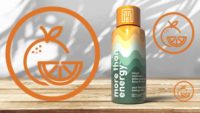Immune Health Concerns are Here to Stay
The global pandemic has raised levels of consumer anxiety while accelerating a more proactive and holistic approach to health

Innova Market Insights’ consumer research indicates that one in four people globally has become more concerned about their immune health since before the pandemic. The most significant increase was among Millennials (aged 26 to 35 years) and younger Gen X (aged 36 to 45 years). Higher levels of concern among these relatively young age groups indicate the potential for longer-term consumer interest.
“Alongside these rising concerns,” reports Lu Ann Williams, global insights director at Innova Market Insights, “consumers are taking a more holistic approach, with getting enough sleep, being physically and mentally healthy and eating the right things ranking highly as ways of achieving immune health.”
In Innova’s 2020 Consumer Survey, choosing foods naturally high in nutrients (vitamins, minerals, antioxidants, etc.) came third as a way of achieving immune health behind getting enough sleep and being physically healthy. Overall, 59% of consumers globally said that they were looking for food and beverages to support them in this regard.
Immune health claims were already trending upward before COVID-19, particularly in Europe and North America. It was one of the fastest-growing health claims in food and beverage globally in terms of the number of new product launches between 2016 and 2020.
Excluding supplements, immune support claims are currently focused in three main food and drink categories: Babies and Toddlers (particularly milks), Sports Nutrition (particularly powders) and Dairy (particularly drinking yogurts/fermented beverages). These accounted for a combined 73% of immune claims on new products in 2020. Smaller but growing subcategories include soft drinks and hot beverages, with a particular interest in juice drinks and tea.
With consumers looking for immune support via food and beverages, there are ongoing opportunities for growth in providing suitable products. Interest may have started in sectors with strong nutritional credentials that form a natural fit for immune-boosting benefits; still, there is potential across a wide range of food and drink products and geographical locations.
In addition, the understanding that a holistic and preventative approach to health needs to take account of physical, mental and emotional aspects could see immunity ingredients increasingly bundled with other ‘feel good’ claims, with mood, emotional well-being, relaxation, and sleep all seen as key areas moving forward.
“Immunity may become less top of mind as the immediate threat of the current pandemic subsides,” concludes Williams. “But if products are easy to integrate into daily lives and have established benefits (e.g. probiotics in yogurt), they are likely to continue to be sought after as part of the ongoing move to healthier lifestyles and the more proactive and holistic approach to health.”
Looking for a reprint of this article?
From high-res PDFs to custom plaques, order your copy today!





